New Study Reveals the Importance of Active-DHA in the Developing Brain
The new study, conducted by researchers at Duke-NUS, reveals Active-DHA transported by MFSD2a found at the blood brain barrier plays a physiological role in both brain growth and health during brain development. LPC-DHA or ‘Active-DHA’ is a natural form of docosahexaenoic acid (DHA) that is attached to a lysophosphatidylcholine (LPC).
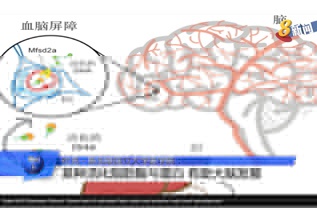
Duke-NUS Medical School: Critical role of DHA on foetal brain development revealed
Mediacorp Channel 8 News, August 16, 2018
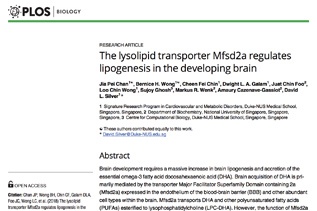
The lysolipid transporter Mfsd2a regulates lipogenesis in the developing brain
PLOS Biology, August 2018
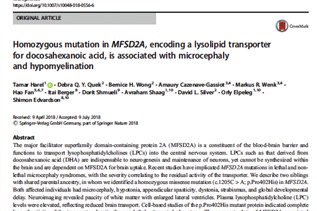
Homozygous mutation in MFSD2A, encoding a lysolipid transporter for docosahexanoic acid, is associated with microcephaly and hypomyelination
Springer Nature, July 2018
The major facilitator superfamily domain-containing protein 2A (MFSD2A) is a constituent of the blood-brain barrier and functions to transport lysophosphatidylcholines (LPCs) into the central nervous system.
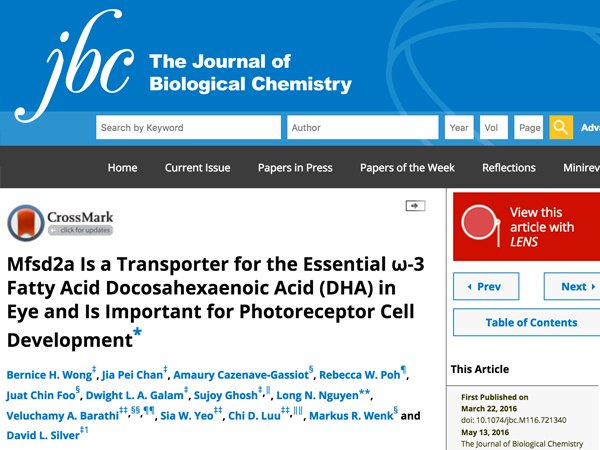
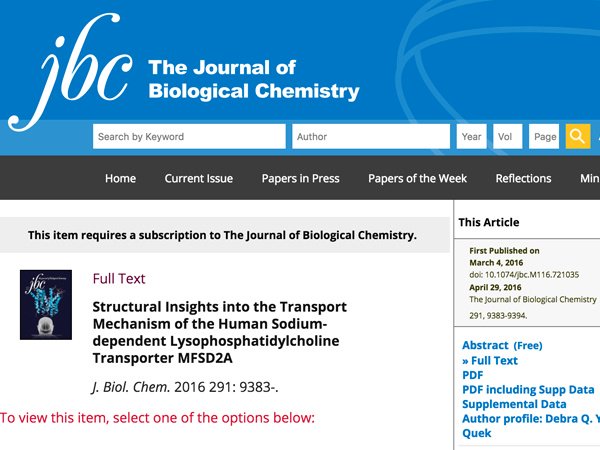
STRUCTURAL INSIGHTS INTO THE TRANSPORT MECHANISM OF THE HUMAN SODIUM-DEPENDENT LYSOPHOSPHATIDYLCHOLINE TRANSPORTER MFSD2A.
J Biol Chem, 2016. 291(18): p. 9383-94
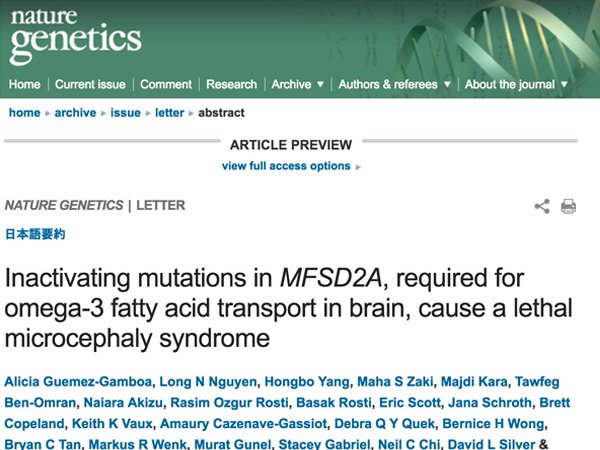
INACTIVATING MUTATIONS IN MFSD2A, REQUIRED FOR OMEGA-3 FATTY ACID TRANSPORT IN BRAIN, CAUSE A LETHAL MICROCEPHALY SYNDROME.
Nat Genet, 2015. 47(7): p. 809-13
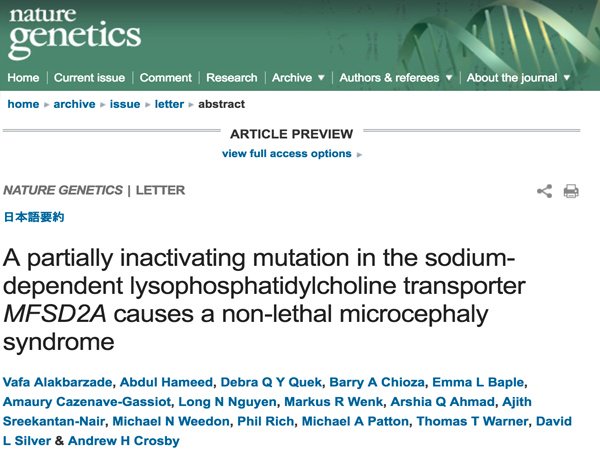
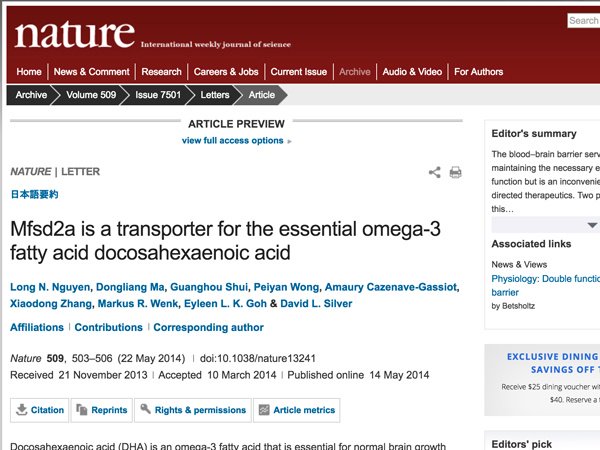
MFSD2A IS A TRANSPORTER FOR THE ESSENTIAL OMEGA-3 FATTY ACID DOCOSAHEXAENOIC ACID.
Nature, 2014. 509(7501): p. 503-6